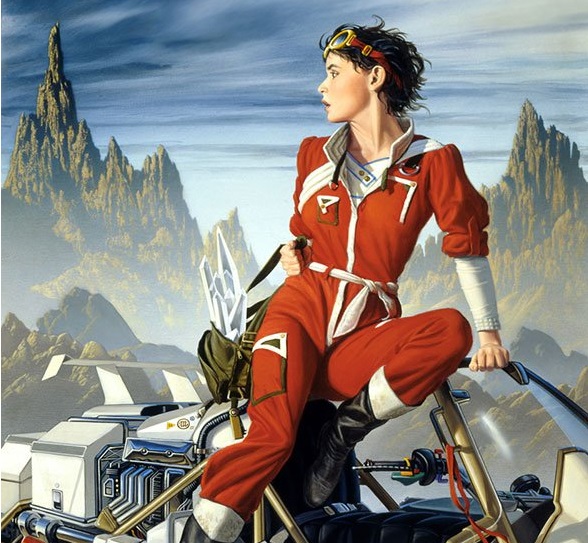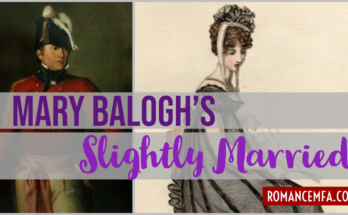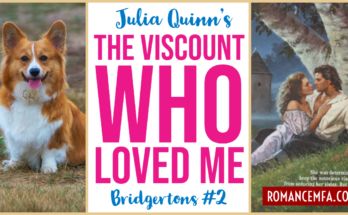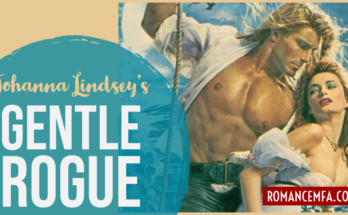Between sick and travel last week, I’m not ready to discuss Desiree yet. However, I did use my sick day to reread Anne McCaffrey’s Killashandra. The book was a high school favorite of mine, and the only one of her books I had my own copy of, despite reading nearly all of her work I could find. I remembered that it had a love story, and I wondered how it holds up against romance genre expectations.
Book details:
Title: Killashandra
Author: Anne McCaffrey
Original publication date: 1986
Setting time & place: A spaceship future, planets of Ballybran and Optheria.
He is… about 25, a musical sailor mixed up in an underground political rebellion.
She is… a 30-something opera singer turned crystal singer, a professional woman at the top of her game.
Reasons to read this title: A classic sci-fi with a badass heroine who gets the HEA she deserves.
My review of Killashandra
Is it a romance novel? Yes.
Is it a must read romance novel? If you’re following the development of sci-fi romance, I’d definitely recommend this one.
My last sick day nostalgia reread was Robin McKinley’s The Blue Sword, a fantasy romance. You may recall that I was surprised to find that McKinley’s story was a rage-response to syllabus reading The Sheik. Well, you could just about knock me over with a feather (except that I was already flat on my back in bed with the flu) when I started to see echoes of The Sheik in Killashandra as well.
If you’ve not read the Crystal Singer trilogy, Killashandra is actually the second, but it stands alone quite well. Our heroine, Killashandra is an Important Galactic Personage, and she is on a work/enforced R&R trip to planet Optheria, where everything looks grand but–surprise!–all is not as it seems.
Killashandra paused in perplexity. A planet so perfect, so beloved by its citizens that no one chose to leave its surface? She found that very hard to believe.
There’s a lot of world building which is excellent but which I’m leaving out so we can look at the bones and where they overlap with Hull’s story.
First, we have an arrogant female coming into a place where she doesn’t understand the culture but she’s going to do things her way or the highway. This is already an echo of Hull’s Diana and her determination to head out into the desert, but I didn’t see the parallel until we got the midnight serenade. In case you’ve forgotten the serenade song in The Sheik, here it is.
…a man’s low voice rose in the stillness of the night. “Pale hands I loved beside the Shalimar. Where are you now? Who lies beneath your spell?” he sang in a passionate, vibrating baritone. … For a moment there was utter stillness, then Diana lay back with a little sigh. “The Kashmiri Song. It makes me think of India. I heard a man sing it in Kashmere last year, but not like that. What a wonderful voice! I wonder who it is?”
In McCaffrey’s tale, Killashandra is the one who begins singing, and an unknown male voice joins her.
Entranced, Killashandra broke off the ballad and began the haunting love duet from Baleef’s exotic opera, Voyagers, which seemed particularly appropriate to the setting. When a tenor voice joined her on cue, she faltered a moment. Then, despite her astonishment at spontaneity in such a rigidly controlled environment, she continued. … Despite a wish for sleep, her mind ranged through the scenes of the Baleef opera and the sorrows of the star-crossed lovers. She must remember to ask Mirbethan who that tenor was.
As I was rereading, I already knew–and you can likely guess–that Killashandra’s mysterious tenor, like Diana’s mysterious baritone, turns out to be the hero of the story. But who hasn’t sung a duet with their future love interest in the middle of the night? It’s the fact that he later kidnaps her that really clinched it for me. Killashandra leaves a meeting to prove a point (that she’s too important to deal with assholes), wanders off in search of beer, and then…
He broke off then because he had turned and caught sight of Killashandra standing in the doorway. She was as motionless with surprise as he for she recognized him, by garb and stance, as the young man from the infirmary corridor. He recovered first while Killashandra was considering the advisability of dissembling. “You’re making this far too easy,” he said cryptically, striding up to her. Surprised, she saw only his fist before a stunning blackness overcame her.
Hull’s Sheik (and McKinley’s King) sets up a complex plan in order to spirit Diana away and have his way with her. Lars Dahl kidnaps Killashandra on the spur of the moment, and rather than hanging around to romance her, leaves her on a tropical island by her lonesome. Killashandra, like Diana, takes it upon herself to escape. Like Diana, she is making good headway until she runs into her kidnapper. Diana is recaptured, and realizes she’s in love.
With a start of recollection she realised fully whose arm was round her, and whose breast her head was resting on. Her heart beat with sudden violence. What was the matter with her? Why did she not shrink from the pressure of his arm and the contact of his warm, strong body? What had happened to her? Quite suddenly she knew—knew that she loved him, that she had loved him for a long time, even when she thought she hated him and when she had fled from him.
Killashandra, unrecognizable after three weeks of getting tan, blond, and fit by swimming from island to island, is unrecognized by Lars. She could just walk away. However, the two of them end up in sparking distance and she realizes that she’s in lust.
Lars Dahl, however, covered her hand on his arm and, just then, their thighs brushed and she lurched against him, abruptly aware of receiving an intense shock. … You sure can pick ’em, Killashandra, she thought, pulled by intense and conflicting emotions. She couldn’t wait to roll with him, somewhere in the warm and fragrant plantation, with the surf pounding in rhythm with her blood. She wanted to solve the conundrums he represented, and she was determined to resolve each one to her advantage—and furious that he didn’t even recognize the woman he had first injured and then abducted.
You see, while Diana was initially a chaste character uninterested in amour of any type, Killashandra is from a sexually liberated future. She’s perfectly ready to sleep with him because a) he’s hot and b) it’s going to be a hell of a gotcha! moment when he realizes who she actually is. But casual sex only, because, as she thinks earlier in the book,
Fidelity was an unlikely disease for her to catch.
We all know that a statement like that from a character is basically a guarantee of the opposite happening in the course of the book and lo! by the end Killa is totally and monogamously attached. And her hero, Lars Dahl, is the son of a father who arrived on the planet from elsewhere. If we read the tropical paradise as exotic, Lars is only half-exotic. Just like Sheik Ahmed is half-English and half-Spanish, and only half-exotic in the end.
While Lars has good reasons for kidnapping her, the fact remains that our heroine ends in love with the hero as a direct result of events set in motion by his kidnapping of her. His reasons are a hell of a lot more sympathetic and reasonable than either Ahmed or Corlath give, however. He Plus, he goes on trial for his actions! There are legal repercussions! McKinley made an attempt at fixing that aspect of Hull’s story but still fell short; McCaffrey, in my opinion, pulled it off.
My complaint about The Blue Sword was that McKinley, in ascribing magical motivation to her characters, robbed them of agency.
McCaffrey’s characters have agency aplenty, and Killashandra’s take-charge personality was my favorite aspect of the book on this reread. While Killashandra has a symbiote in her body which gives her rapid healing power and the occasional warning about the weather, there’s nothing making decisions for her other than herself. Some of her decisions are stupid (lying about requiring alcohol for proper metabolism just because she doesn’t like the drinks she’s been served), some are inspiring (why not just rescue yourself by swimming through shark-infested waters?), but they’re all her own. She is ready, willing, and able to manipulate others, but I find I’m okay with that in this story.
There is one sour note in the novel: the token gay villain, with sidekick bi villain. Bleh. That’s not a good look in 2018, persistent heroine notwithstanding.
McCaffrey passed in 2011, so we can’t ask her if she was influenced by The Sheik, or if this is all merely coincidence, but it sure leaves me curious about what other echoes I will see as I continue reading!



